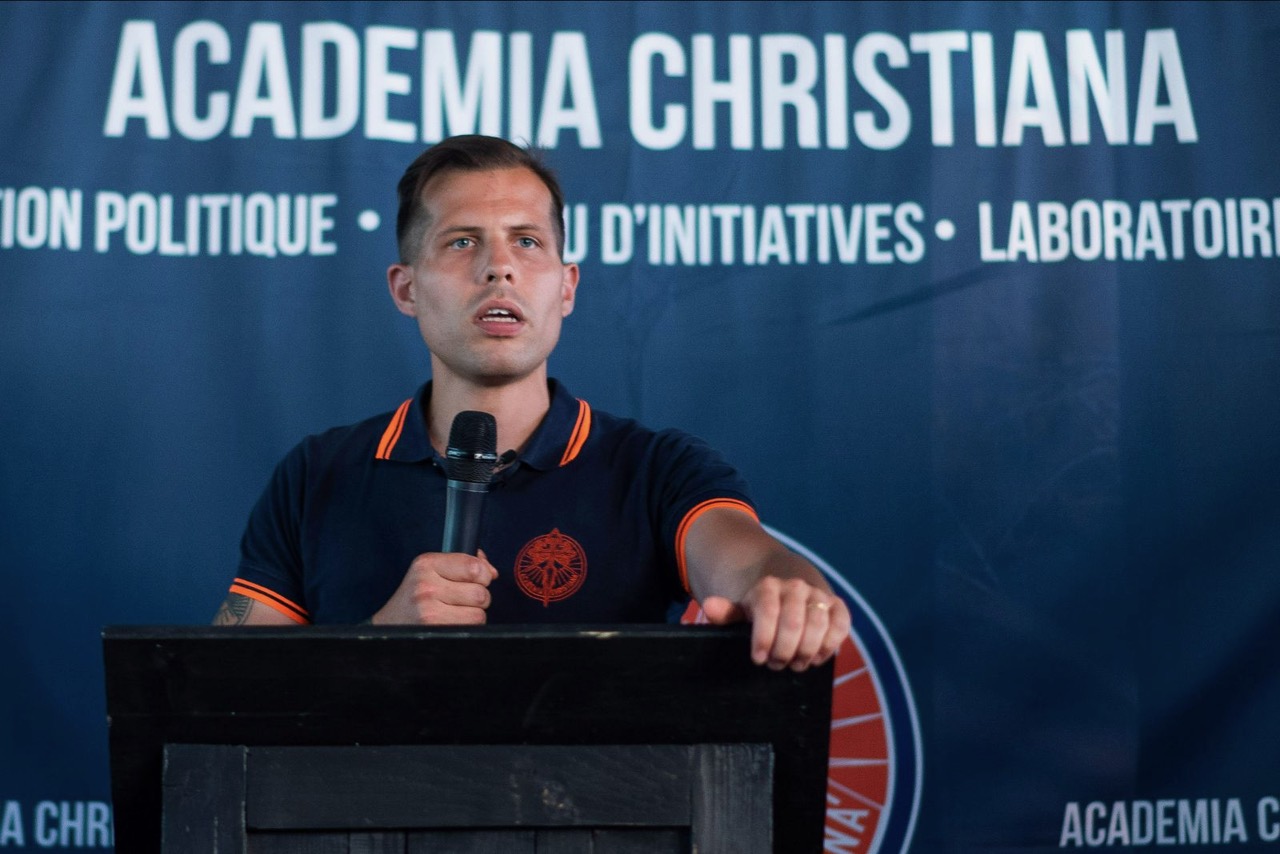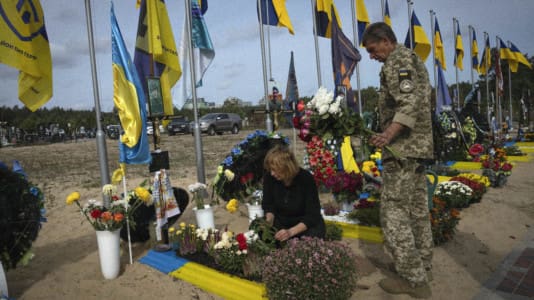What kind of organization is Academia Christiana, which France’s Interior Minister Gérald Darmanin has said is going to be banned?
It is an association functioning under the French 1901 law on associations. From a legal point of view, it fits in with the French constitutional law, which allows the creation of associations for different purposes.
In our case, the purpose is to provide young people with both spiritual and intellectual Christian formation in the traditional spirit of the Church. Academia Christiana was founded in 2013 by four students, including myself. Of the three others, two are now married, like me, and one has become a priest.
We act as a training institute that organizes universities and training sessions in history, philosophy, and literature, as well as, for the religious dimension, in catechism. Our association is also a think tank that publishes books, symposia, and video interviews on societal issues such as identity, ecology, culture, and anthropological decline.
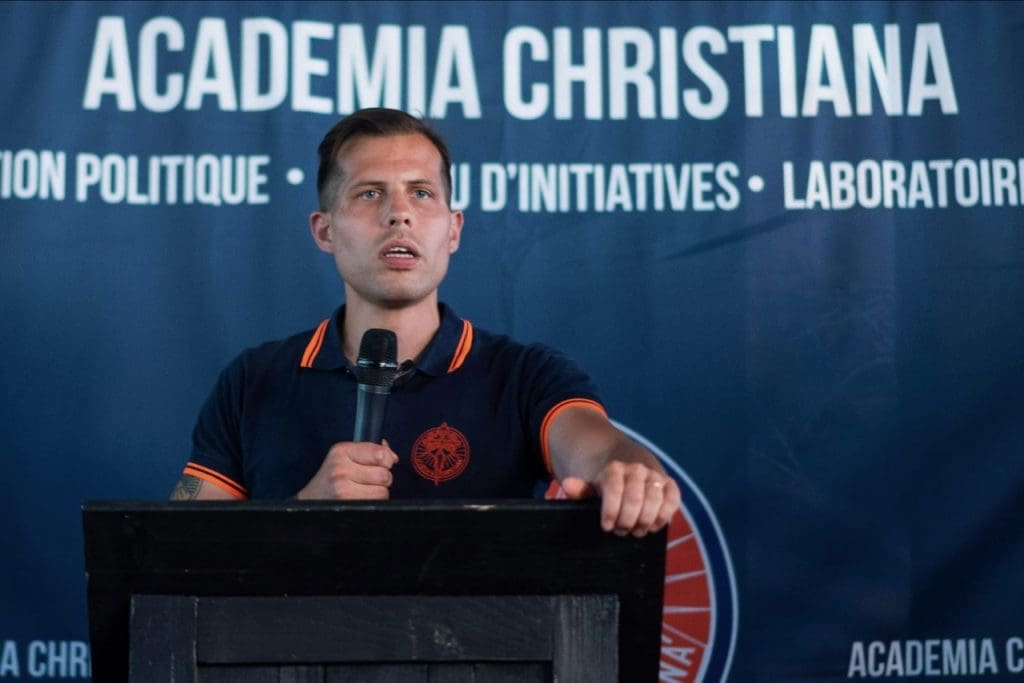
The third dimension of Academia Christiana is to be a network of initiatives linking the young people who come to the events we organize with associations, companies, artists, and craftspeople, to inspire them to commit themselves to serving the common good in society. Over 2,000 young people have participated in Academia Christiana events since 2013.
We also organize traditional festivities such as bonfires on Saint John’s Eve and balls with traditional dances. By doing this, we try to create a little bit of cohesion, of community spirit, in a traditional atmosphere, among all the people who gravitate around Academia Christiana.
We are not a political movement. Strictly speaking, Academia Christiana does not have members; it is not a movement that organizes demonstrations, comments on current events, or really gets involved in the political arena. It is more of a cultural association, which is active in the intellectual field of training, culture, and ideas, but one that stays out of the electoral game.
It is said that you also practice martial arts at your summer universities, alongside attending the traditional Holy Mass and cultural training courses.
In fact, as part of our summer universities, which are full weeks of training for young people, with between 300 and 500 young people each time, there are various sporting activities.
There is mass every day, of course, the rosary, and adoration of the Blessed Sacrament, alongside conferences. We also have less intellectual activities: sports, which can be boxing, but also volleyball, soccer, pétanque, etc.; traditional dances; as well as workshops on sewing, the art of wine, and all kinds of less directly intellectual subjects.
[pp id=81667]
The practice of boxing is one of the reasons why the interior minister wants to ban us. Because of this, he claims that there is a violent dimension to Academia Christiana.
I would like to make it clear here that boxing is practiced in a sporting setting under the guidance of boxing instructors and is carried out as a leisure activity, as a sport. It is not aimed at attacking anyone.
You are a professor of philosophy who converted to Catholicism, yes?
That’s right. I am 34 years old and I am married with three children. I teach philosophy at the Institut Croix des Vents in Sées, a private Catholic school in Normandy. I studied at the Sorbonne in Paris.
How did you learn of the government’s decision to ban your association? How did you find out about this?
The police came to my home with a letter notifying me of the Interior Ministry’s intention to ban our association. We had exactly 10 days to respond, which we did.
At first, I did not talk about it publicly, only to our lawyer and internally, but then, in an interview on Sunday, Dec. 10, just a few days after I had been notified, Minister Darmanin announced his intention to ban our association.
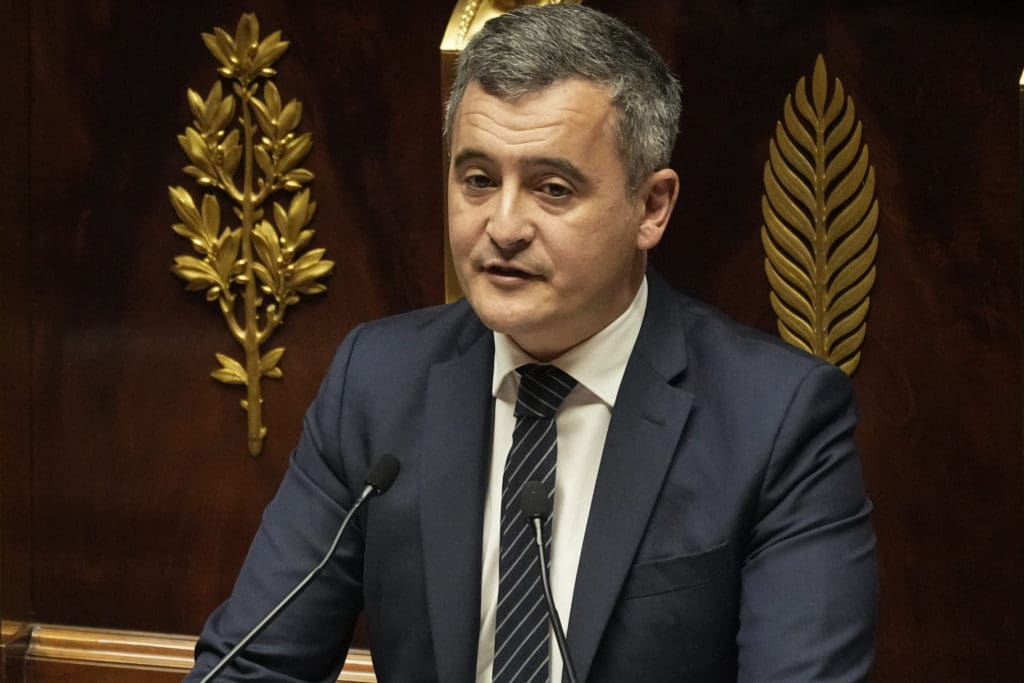
This way, he breached the procedure that normally governs relations between the public and the administration. And on Monday morning, the next day, he once again announced on TV that he was banning our association, as an association to which he attributed anti-Semitic and collaborationist remarks, which is obviously totally untrue. In fact, even journalists’ reactions were that he had got his facts wrong by attributing these remarks to us.
Where did he get these remarks from, then, to attribute them to you?
I do not know. There are talks of other associations that have recently been banned, but which have nothing to do with our work or our identity. As far as we are concerned, these are subjects we have never discussed in our training courses. From our point of view, these subjects are not really interesting or topical.
[pp id=81590]
So, to sum up, what is bothering France’s interior minister are comments he wrongly attributes to you and the practice of boxing at your summer universities, is that it?
Truth be told, there are many more elements in the file. In the eyes of the government, we tick all the boxes of vileness and bad thinking, including anti-Semitism, glorification of WWII collaboration with the Nazis, glorification of male-female inequality, homophobia, incitement to violence, incitement to hatred toward people with immigrant backgrounds, and so on.
All this, of course, is not based on any real facts, but on manipulated statements.
[pp id=5710]
So, for example, concerning violence, we say in a video that we need to train an army of builders. This is, of course, a metaphor that has been used in the past by certain presidents. I believe it was Barack Obama who said that the United States needed an army of entrepreneurs. But anyway, these are pretty ridiculous things we are accused of.
On the subject of male-female inequality, it is because we have mentioned in articles the virtue of Christian modesty and the fact that in a family, the father and husband is in charge of making decisions, based on the epistles of St. Paul, which are pronounced at the time of Christian marriage, and so on.
These are all manipulated, or at any rate interpreted, remarks that in reality resemble a crime of opinion.
Academia Christiana has rather conservative inspirations, indeed. In a way, we are in a situation where “progressive thinking” seems to be the law, which we are accused of breaking with our conservative discourse.
What do you think are the real reasons for this ban? Minister Darmanin’s decision is surprising, even after other abusive bans such as that of Generation Identity, for example. In that case, it was clear he wanted to prevent young French patriots from drawing the public’s attention to illegal immigration. In your case, however, what could this be about?
I think there are several possible explanations. If we go back a little further in time, following the murder of Samuel Paty, the teacher who had his throat slit on leaving his school, President Macron gave a speech on separatism, in which he targeted Muslims as well as Catholics. Since the law on separatism was subsequently enacted, many traditional Catholic schools have been attacked by school board inspectorates on the grounds that they indoctrinate children.
The authorities are hardening their stance toward Catholics as part of Macron’s policy that in France is described as an “at-the-same-time” policy, i.e., his policy seeks to address both the left and the right at the same time. Concretely, since they’re pleasing the right by attacking Muslims, they also need to please the left by attacking everything that’s conservative, Catholic, etc. in France.
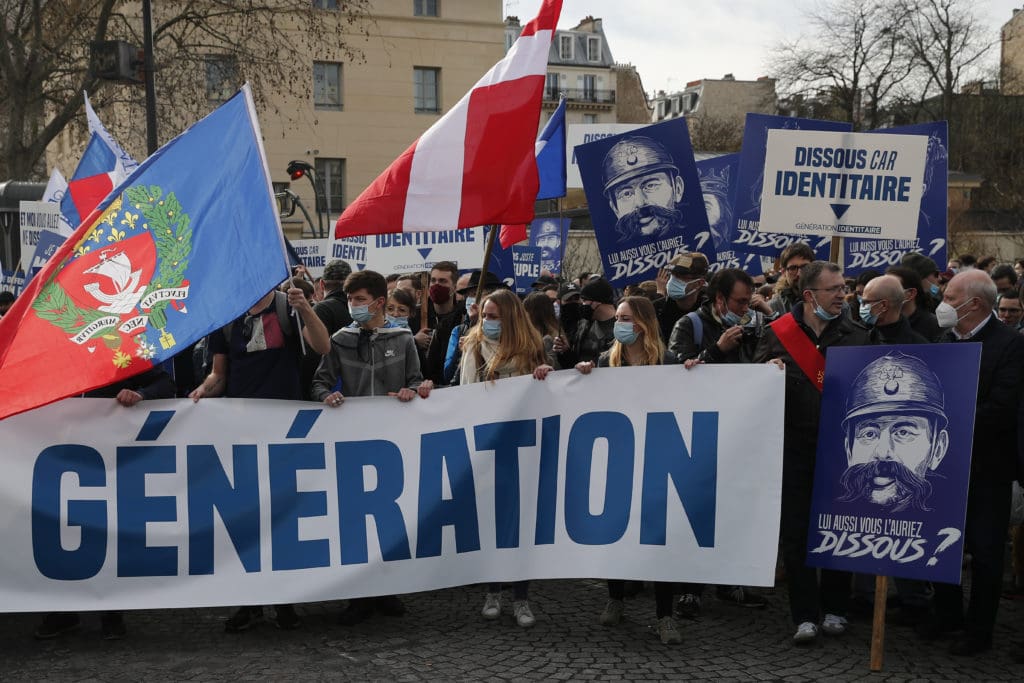
Two more recent developments may also help explain this ban. Following the stabbing death of a young boy, Thomas, in Crépol by young thugs with an immigrant background, an undeclared demonstration by French youths went to the city district in Romans-sur-Isère where the attackers were believed to live. Some of these young demonstrators were arrested and immediately sentenced to prison terms.
At the time, French Interior Minister Gérald Darmanin declared that he would ban several associations. He mentioned one that was not even a real association, but a completely unknown de facto grouping, which may not have even been real. It is called the Martel Division, which is a name that can indeed scare people a little. And then he announced two other bans: that of an identitarian bar called La Citadelle in Lille and that of Academia Christiana.
The second development is the immigration law, which was debated in the French parliament. The presidential camp had been striving to make a law that would satisfy both Mélenchon’s La France Insoumise (LFI) far left, which is rather pro-migrant, and, on the other hand, the more conservative right. This explains why the law took so long to pass since it satisfied no one.
But as this law is reputed to be a little more right-wing, or in any case it has been attacked by the far left as being right-wing, for good measure the government is dissolving associations said to be “far right,” or even “ultra right,” even though we have never identified with that label ourselves.
Banning our association may therefore be a way of satisfying the far left too. In fact, if our association is today described as far right, it is clearly because of the media campaigns of the far left, for whom we represent a totally imagined threat and who attribute to us an influence that we do not have.
And about this issue of violence, what we need to understand is that in France there is a real sense of injustice felt by French youth, not least because of the many acts of violence that many French people feel go unpunished.
We see a real double standard, with some young people who have simply put up a banner to denounce immigration being put in prison, while others, who have committed violent assaults, are quickly released by the courts or merely arrested before being released by the police.
And so, when these things pile up, these young people can be tempted to violence and anger, and an association like Academia Christiana, like other associations, helps to channel this violence and transform it into something else.
We do not incite violence. On the contrary, we encourage young people to get involved and think more long-term by saying: “What can I do for my country, which is in decline?”
Well, I can create a business, I can become an artist who makes people love France, and I can also help them discover our heritage, whether it’s culinary, wine, dance, singing, etc. I can organize events like theater plays, so that the French, who feel alone and lost, have the feeling that they haven’t been abandoned.
In the end, we are trying to prevent violence, and there is something rather absurd about this ban.
You have said that you intend to challenge the government’s decision all the way through to the Council of State, France’s highest administrative court. But of the dozens of dissolutions of organizations ordered under President Macron, the only one rejected by the Council of State was that of Les Soulèvements de la Terre, a far-left environmental movement known for committing violence. The Council of State is notoriously docile to the executive in France, and most people will know that its rejection of the ban against Les Soulèvements de la Terre must have matched President Macron and his government’s hidden expectations. The same Council of State also refused to invalidate the dissolution of organizations that had committed no violence, such as Generation Identity. Do you still have hope that the French courts will rule in your favor and defend your right of association?
I still have some hope in the sense that there really isn’t any violence that can be attributed to us one way or another. It is true, however, that this was also the case for Generation Identity, where no charges of violence were upheld against them. In any case, the Council of State’s response will at least be a good barometer for measuring what remains of the rule of law and freedoms in France.
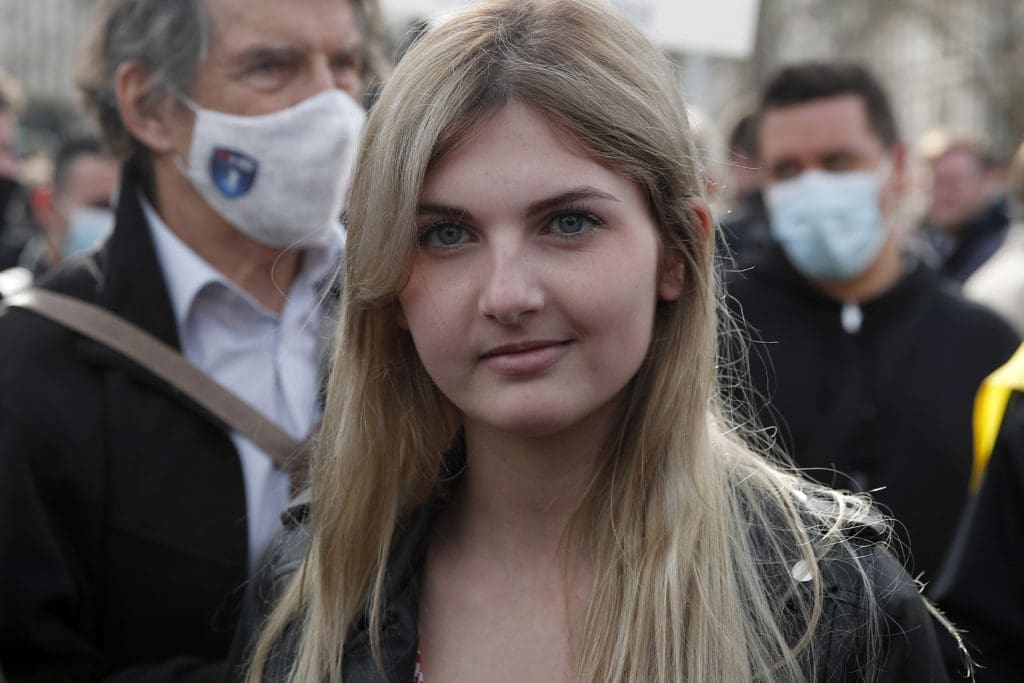
The rule of law and democracy have been repeatedly flouted in recent years. We will see if we are once again moving in the direction of restricting freedoms. This seems to be the beginning of a rather worrying period for our country and, more generally, for the countries of Europe, since France, in this respect, is also being watched by other countries.
The French have long been known for their propensity for revolution, but we now have the impression that they have lost all capacity for resistance. You are dealing with young people: What is your take? Despite everything, do you still hope that French society has the capacity to resist the current totalitarian drift of liberal democracy and the mass immigration imposed by those in power?
What is certain is that this type of decision by the Ministry of the Interior is bound to create despair and anger in many people. On the other hand, and I think it is the same for all nations, there are a certain number of things that people can put up with in a spirit of self-sacrifice, but at some point, you cross a threshold beyond which people revolt. I do not know when this threshold will be crossed as far as the French are concerned.
And then I think political systems that have run their course sometimes tend to stiffen at the end of their life. We saw this in Soviet history, for example. We see it in the Church too nowadays, where the Church’s somewhat progressive government seems to be hardening up in its stance, while in reality, among the Church’s youth, these progressive ideas are outdated. Most young people want something traditional and are no longer in tune with these ideas.
I think there is something similar going on in France, where we are now at the end of an era. Our elites, those in power, are clinging to a system. Any questioning is painful for them, which is why they systematically repress it.


